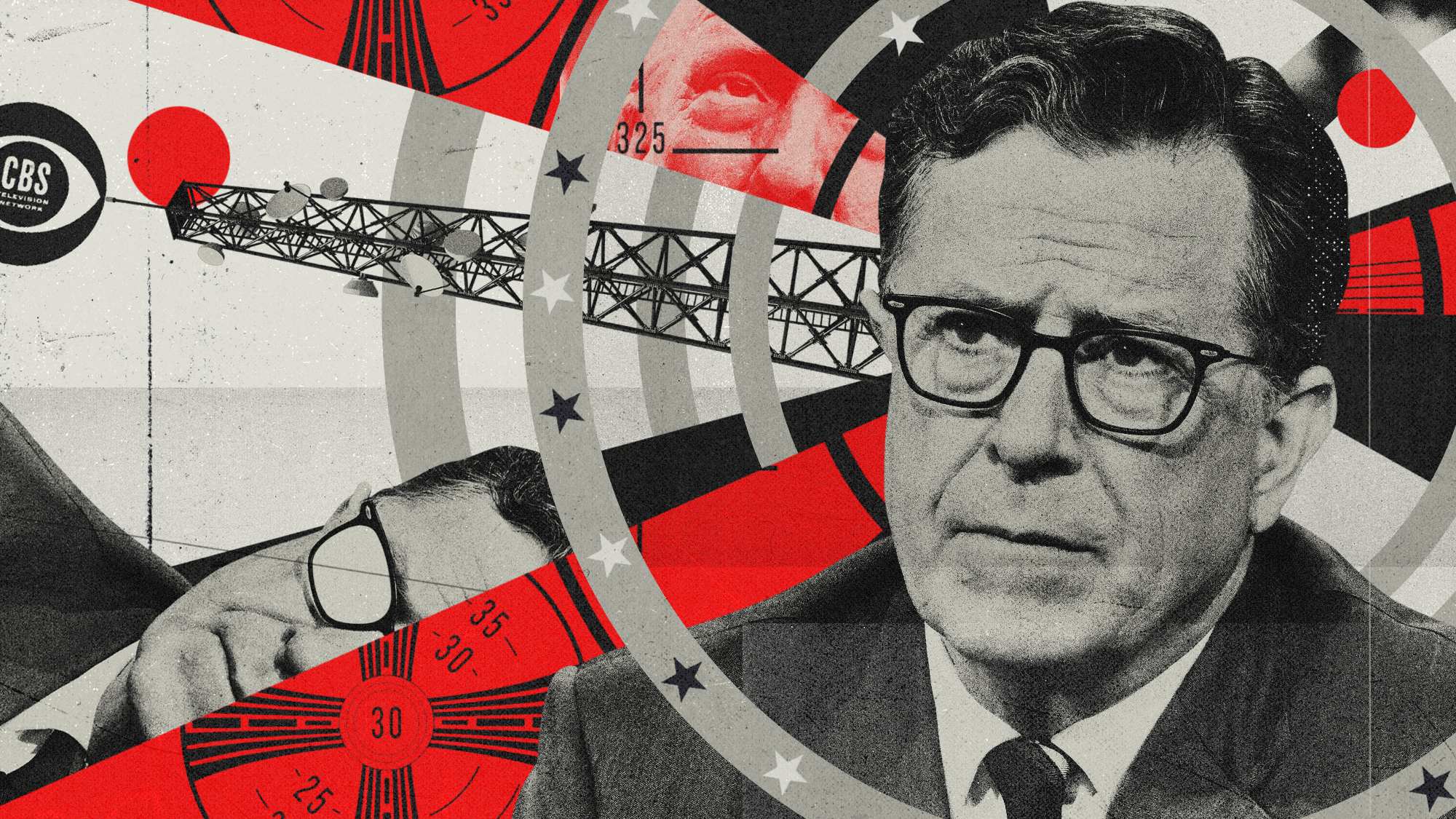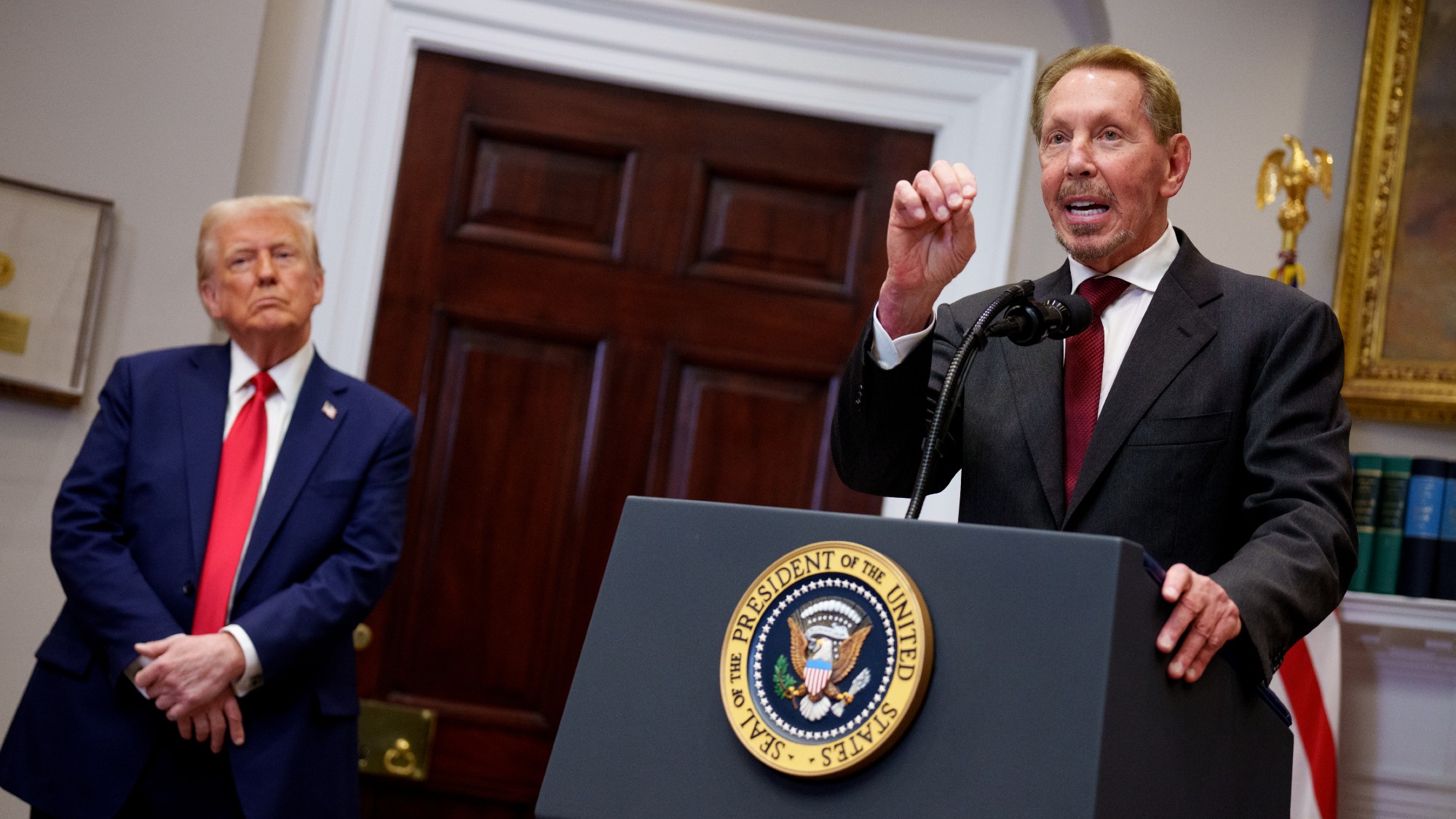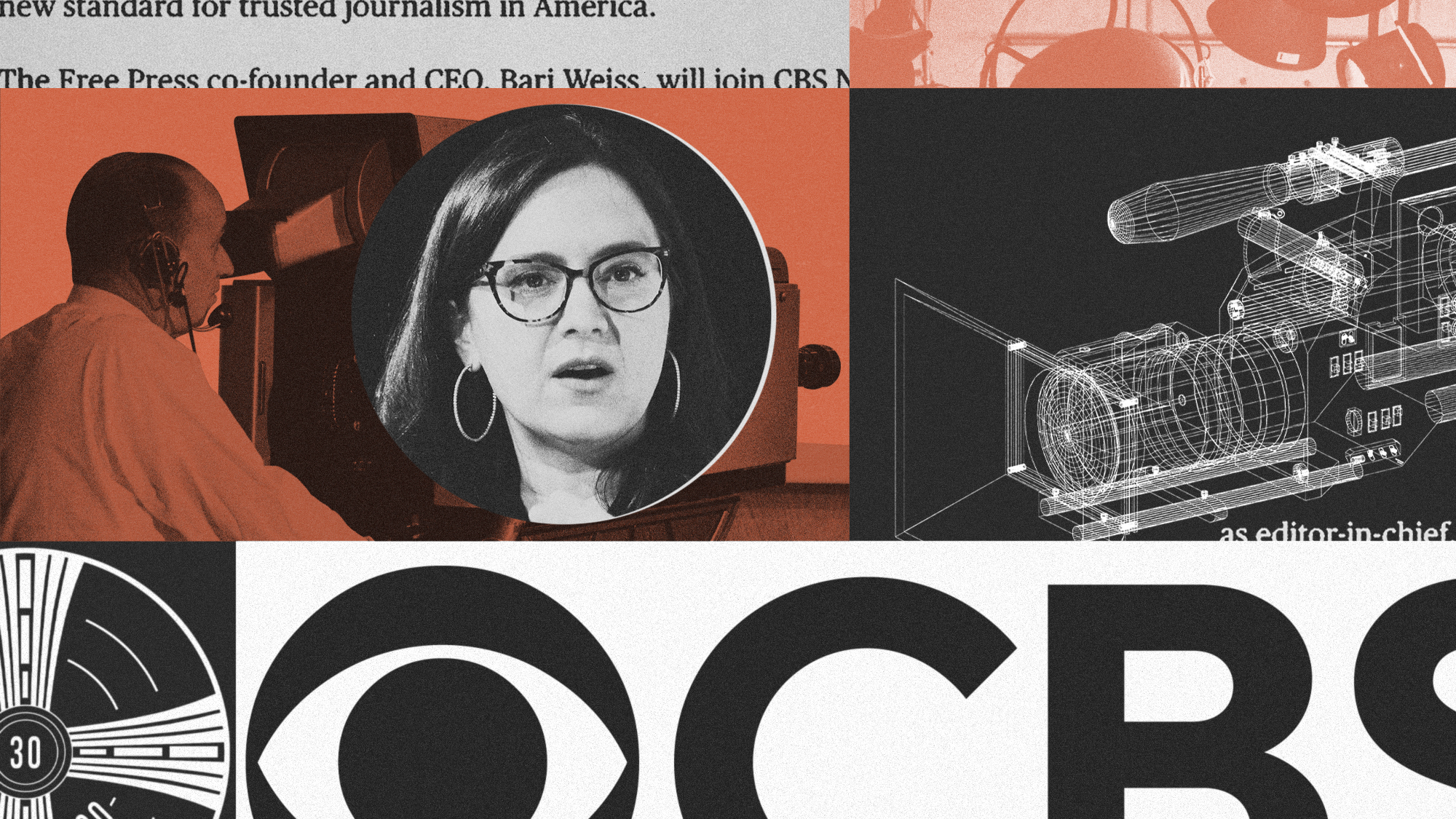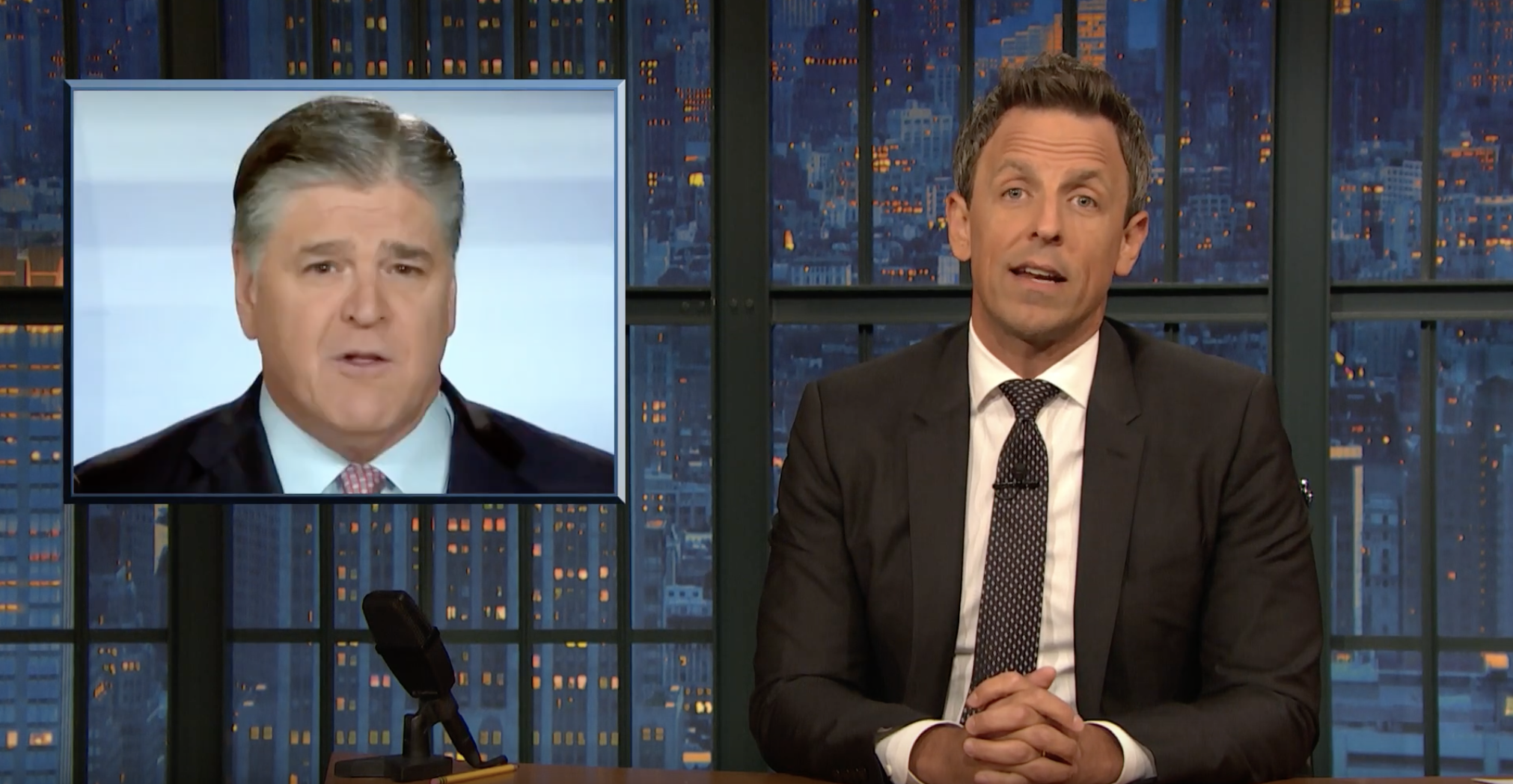Is this the end of the late-night chat show?
Totems of US media landscape 'seem like relics of a bygone era' as ad revenues plummet and viewers switch to YouTube, TikTok and podcasts

A free daily email with the biggest news stories of the day – and the best features from TheWeek.com
You are now subscribed
Your newsletter sign-up was successful
"Folks, I'm going to go ahead and say it. Cancel culture has gone too far."
That was US TV host Stephen Colbert on Monday reflecting on the controversial decision to end "The Late Show".
Late-night talk shows are "enormous totems on the US media landscape", said Euronews, "so news that CBS is axing its version after more than 30 years has sent shockwaves across the industry".
The Week
Escape your echo chamber. Get the facts behind the news, plus analysis from multiple perspectives.

Sign up for The Week's Free Newsletters
From our morning news briefing to a weekly Good News Newsletter, get the best of The Week delivered directly to your inbox.
From our morning news briefing to a weekly Good News Newsletter, get the best of The Week delivered directly to your inbox.
The network insisted the decision was solely "financial" and made "against a challenging backdrop in late night". Many have given this argument short shrift seeing as the show has been the highest-rated late-night offering for nine consecutive seasons. Others have questioned the timing of the announcement, coming just days after Colbert attacked CBS parent company Paramount for settling a $16 million lawsuit with Donald Trump. Paramount requires federal approval for a pending $8 billion merger with Skydance Media.
Eyeballs and advertisers
"Late night used to command attention from insomniacs, college students and marketers looking to reach an audience that was traditionally younger than primetime," said The Hollywood Reporter. "But those days are long gone," and the format increasingly "seems like a relic of a bygone era".
In truth, late-night TV has been "struggling for years", said Reuters, "as viewers increasingly cut the cable TV cord and migrate to streaming". The younger element is increasingly turning to YouTube or TikTok, "leaving smaller, ageing TV audiences and declining ad revenues".
Advertising revenue for Colbert's show has dropped 40% since 2018, according to ad tracking firm Guideline. Go back 15 years and popular late-night shows could earn $100 million a year, now they operate losses running to the tens of millions.
A free daily email with the biggest news stories of the day – and the best features from TheWeek.com
"Colbert might be number one, but who watches late-night TV anymore?" one insider bluntly told the New York Post.
Just like the shock when Blockbuster Video finally called it quits after years of falling revenues, so the end of late-night shows has been "every bit as writ-in-stone", said the tabloid.
These "retro programmes" that started broadcasting in the 1950s as an "experiment to fill time" command way too few viewers "to justify their exorbitant cost anymore".
'Smaller and more sustainable'
"Given the way the broadcasting winds are blowing, this cancellation is unlikely to be the last," said the BBC. Other late-night legacy shows hosted by the likes of Seth Meyers, Jimmy Fallon and Jimmy Kimmel "might soon follow".
In this sense, CBS has "ripped off a bandage that the big three networks have been applying to similar wounds for years", said Jesse Hassenger in The Guardian.
"These types of programmes are generally not a genre people will stream or watch via catch-up," said Frances Taylor, TV previews editor at Radio Times. Late shows have also been replaced by YouTube formats or popular podcasts as the first place publicists now offer their stars.
All this means that the future of late-night talk shows and the comedians who host them likely lies in "embracing the reach of digital media, and creating something new at a smaller, more sustainable scale", said The Hollywood Reporter.
"The economic model of YouTube has improved to the point where it can sustain a real business. Maybe not one of the scale or scope of the CBS Late Show, but certainly something that rhymes with it."
-
 Local elections 2026: where are they and who is expected to win?
Local elections 2026: where are they and who is expected to win?The Explainer Labour is braced for heavy losses and U-turn on postponing some council elections hasn’t helped the party’s prospects
-
 6 of the world’s most accessible destinations
6 of the world’s most accessible destinationsThe Week Recommends Experience all of Berlin, Singapore and Sydney
-
 How the FCC’s ‘equal time’ rule works
How the FCC’s ‘equal time’ rule worksIn the Spotlight The law is at the heart of the Colbert-CBS conflict
-
 Colbert, CBS spar over FCC and Talarico interview
Colbert, CBS spar over FCC and Talarico interviewSpeed Read The late night host said CBS pulled his interview with Democratic Texas state representative James Talarico over new FCC rules about political interviews
-
 Larry Ellison: the billionaire’s burgeoning media empire
Larry Ellison: the billionaire’s burgeoning media empireIn the Spotlight Oracle founder’s takeover of traditional and new media companies labelled ‘dangerous for democracy’ by US press watchdog
-
 How Bari Weiss could change CBS News
How Bari Weiss could change CBS NewsTalking Points Is the network trying to ‘appease’ the president?
-
 Seth Meyers mocks 'lunatics' on Fox News and their plans to stop mass shootings
Seth Meyers mocks 'lunatics' on Fox News and their plans to stop mass shootingsSpeed Read
-
 How CNN, MSNBC, and Fox News are processing Rudy Giuliani's 'no collusion' bombshell
How CNN, MSNBC, and Fox News are processing Rudy Giuliani's 'no collusion' bombshellSpeed Read